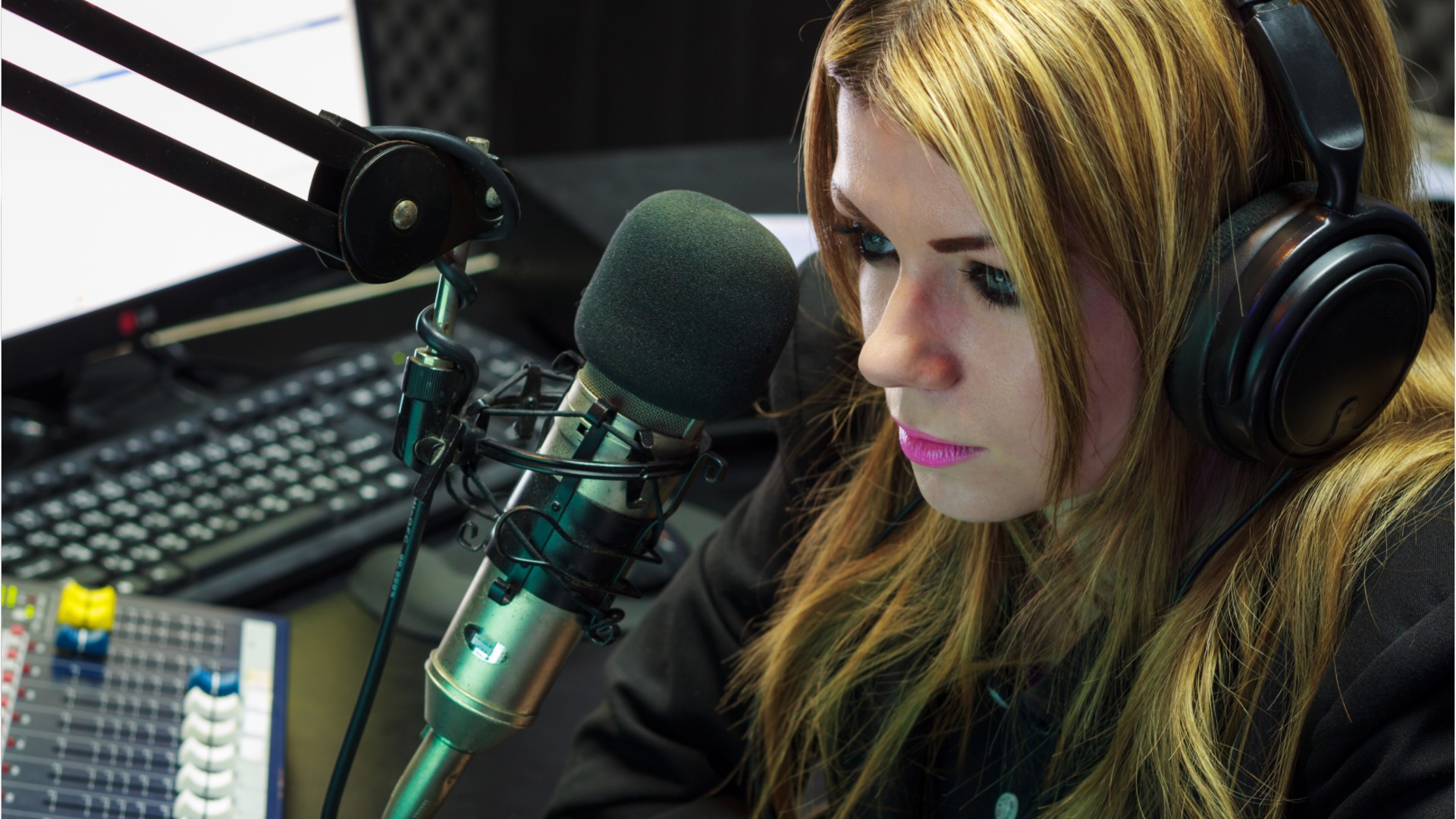Broadcast Announcers & Radio Disc Jockeys
Anchor, Announcer, DJ (Disc Jockey), On-Air Personality
 Select a military branch to see samples.
Select a military branch to see samples.
Public Affairs; Public Affairs Apprentice; Public Affairs Craftsman; Public Affairs Helper; Public Affairs Journeyman
Public Affairs Mass Communication Specialist
Public Affairs Specialist; Public Information Specialty
Communication Strategy and Operations Chief
Broadcaster; Communication Director; Conversion NEC MC Mass Communications; Mass Communications Specialist; Multimedia Director/Producer; Press Officer
No similar titles were found.
What they do:
Speak or read from scripted materials, such as news reports or commercial messages, on radio, television, or other communications media. May play and queue music, announce artist or title of performance, identify station, or interview guests.
On the job, you would:
- Read news flashes to inform audiences of important events.
- Announce musical selections, station breaks, commercials, or public service information, and accept requests from listening audience.
- Operate control consoles.
Knowledge
Communications
- multimedia
- telecommunications
Arts and Humanities
- English language
Engineering and Technology
- computers and electronics
Skills
Basic Skills
- talking to others
- listening to others, not interrupting, and asking good questions
Problem Solving
- noticing a problem and figuring out the best way to solve it
Abilities
Verbal
- communicate by speaking
- listen and understand what people say
Ideas and Logic
- create new and original ideas
- come up with lots of ideas
Attention
- pay attention to something without being distracted
- do two or more things at the same time
Hearing and Speech
- speak clearly
Personality
People interested in this work like activities that include creating, designing, and making your own rules.
They do well at jobs that need:
- Self-Confidence
- Social Orientation
- Dependability
- Optimism
- Self-Control
- Adaptability
Technology
You might use software like this on the job:
Data base user interface and query software
- Database software
- Microsoft Access
Video conferencing software
- Zoom
Music or sound editing software
- Adobe Audition
- Audion Laboratories VoxPro
Education
Education: (rated 4 of 5)
bachelor's degree or
some college
usually needed
some college
usually needed
Job Outlook
Below Average
New job opportunities are less likely in the future.
Explore More
- Film & Video Editors
- Media Programming Directors
- Media Technical Directors/Managers
- News Analysts, Reporters, & Journalists
- Producers & Directors
You might like a career in one of these industries:
See more details at O*NET OnLine about Broadcast Announcers & Radio Disc Jockeys.





